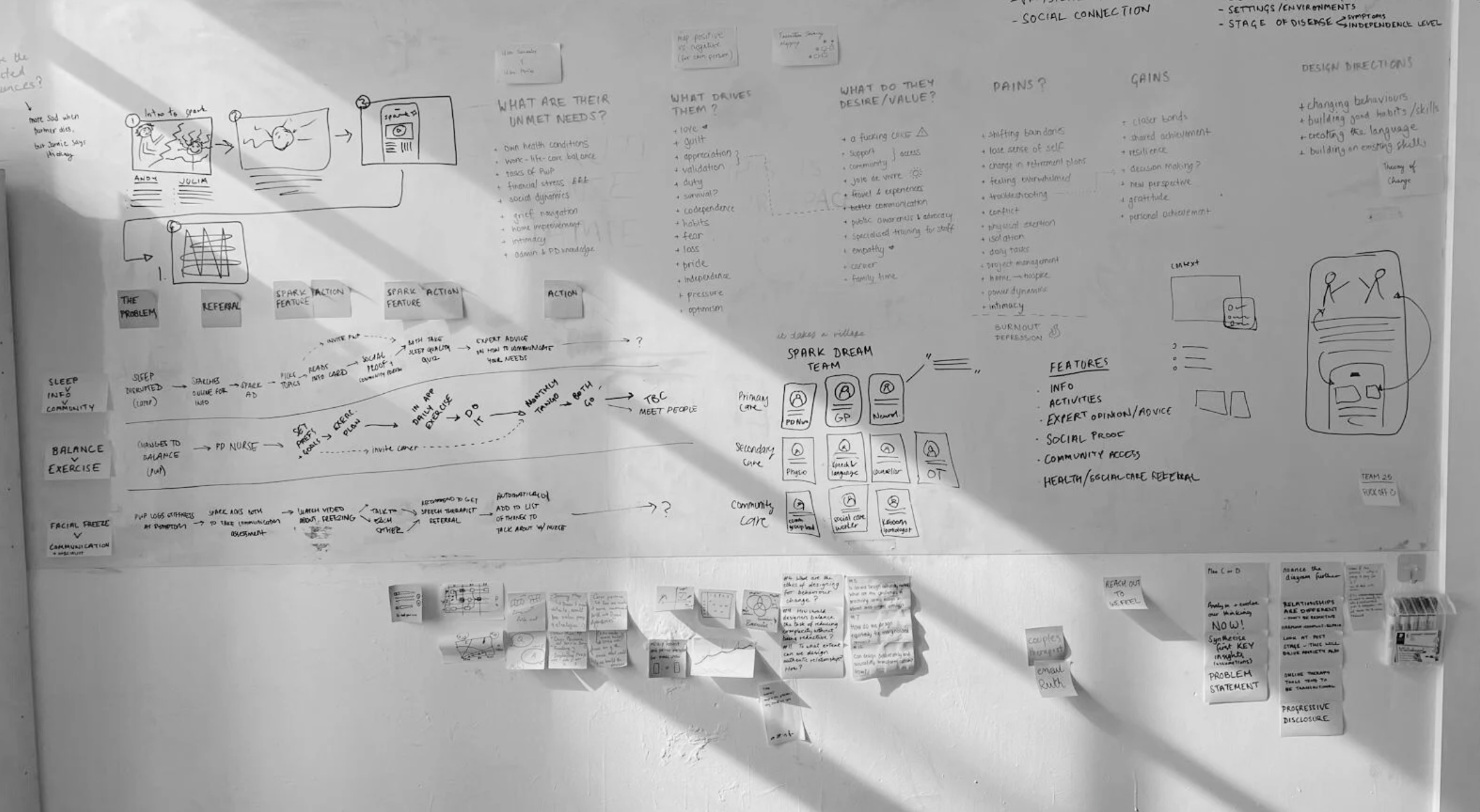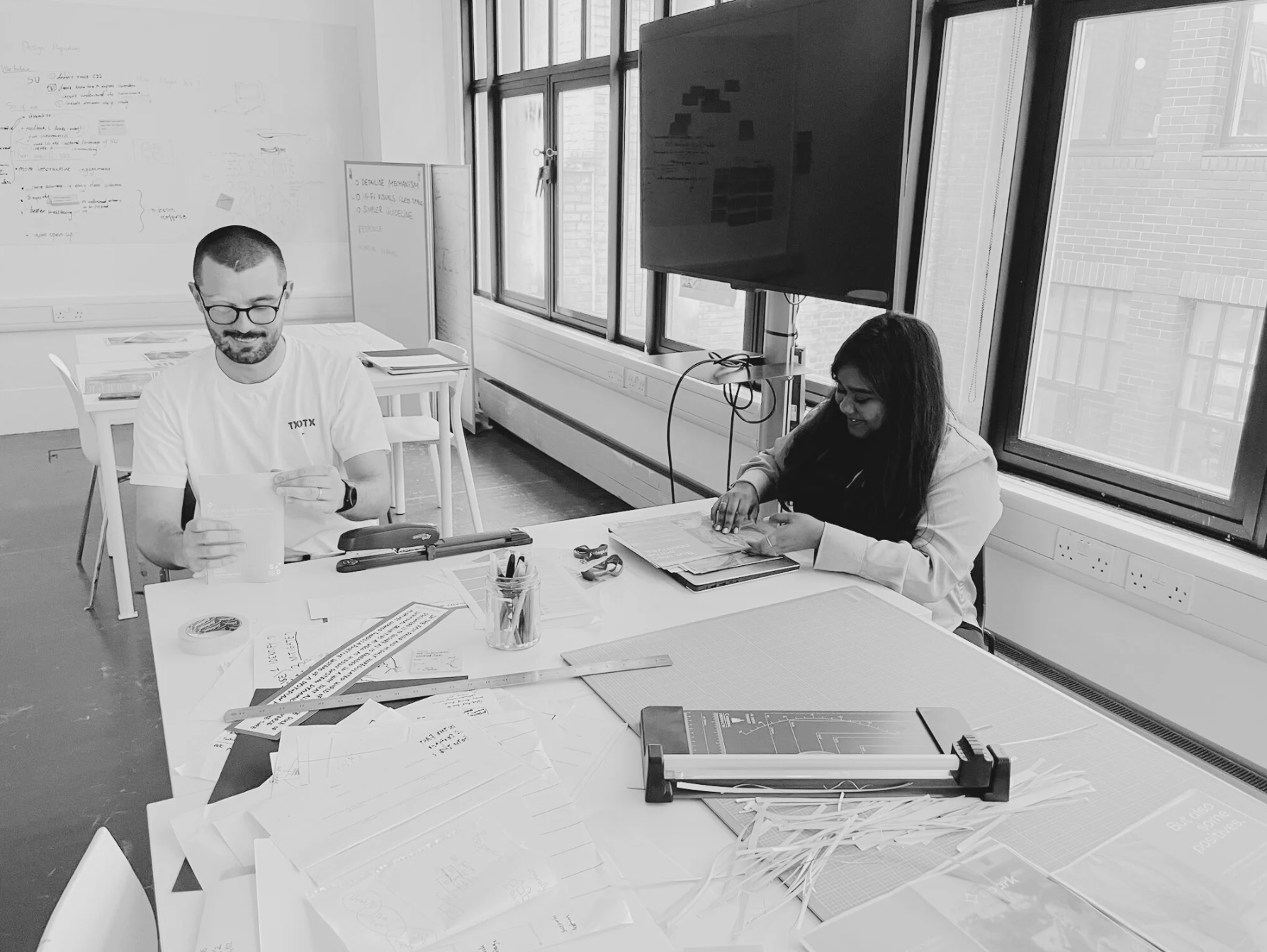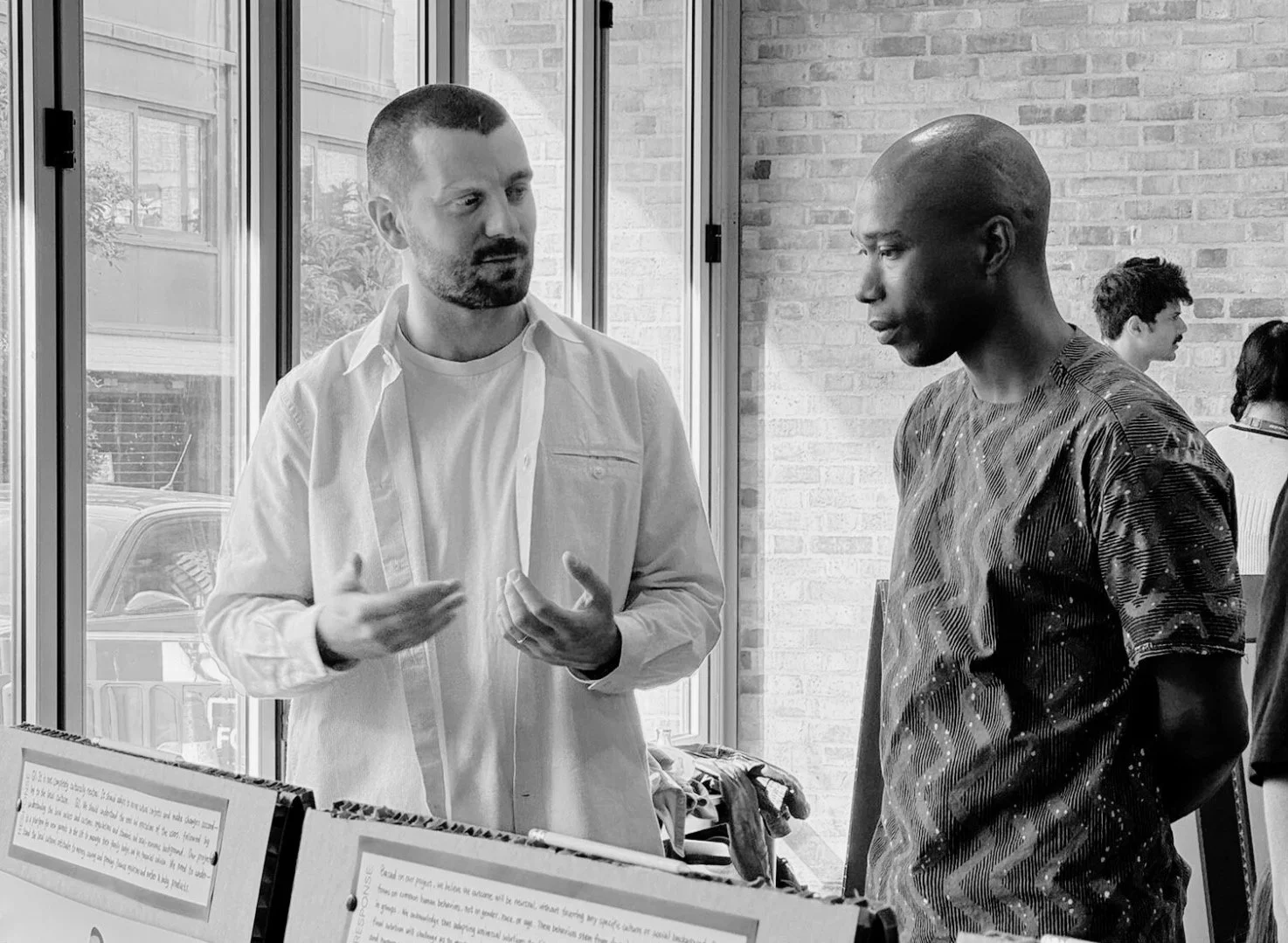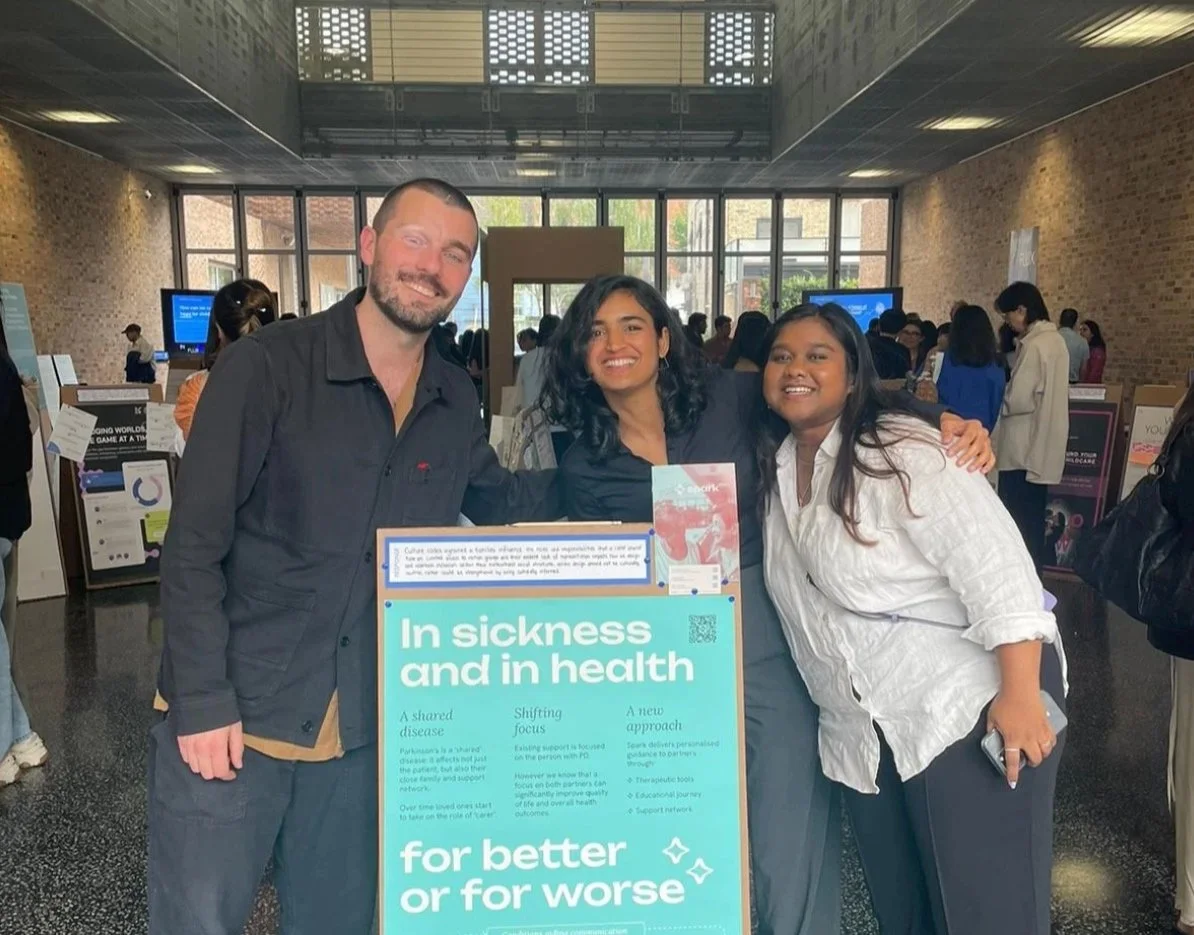
Service Design - Health+Social care
Spark: Empowering couples with Parkinson’s Disease to navigate challenges.
In a nutshell
•
In a nutshell •
What problem are we addressing?
While existing interventions rightly prioritise the person diagnosed, less than 1% of interventions are directed toward carers, most often, their partners. This oversight neglects a staggering £162 billion in annual economic value from carers in England alone. Failing to support them isn't just a gap in care, it's a systemic blind spot with real human and economic costs.
What impact are we creating?
A shared disease.
A progressive neurological disorder that affects all aspects of daily life, causing symptoms like tremors, stiffness, difficulty with coordination, and cognitive changes. Parkinson’s affects not just the patient, but also their close family and support network. Caring has a significant impact on health and wellbeing and is often overlooked in the general PD healthcare experience.
-
A progressive neurological disorder that affects all aspects of daily life, causing symptoms like tremors, stiffness, difficulty with coordination, and cognitive changes. PD is a degenerative neurological condition that progressively impairs every aspect of daily life. It manifests through TREMORS, MUSCLE STIFFNESS, CORDINATION issues, and COGNITIVE changes.
-
As the disease develops for the person with Parkinsons, from normal life to complete dependence, so to does the experience of the partner, as they transition to a full time carer, taking on increased burden, and eventually burnout. Parkinson’s affects
Over time family members BECOME CARERS. They face significant HEALTH and WELLBEING IMPACTS, which are often OVERLOOKED.
There is a significant IMBALANCE in who carers are: 70% of INFORMAL CARERS are WOMEN, and an equal percentage are spouses.
-
There are many ways in which Parkinson’s significantly affects a relationship. It can increase communication challenges, as well as feelings of denial, grief, guilt, and social isolation.
Parkinson’s has a significant impact on the partner, who suddenly finds many new challenges.
As the disease develops for the person with Parkinsons, from normal life to complete dependence, so to does the experience of the partner, as they transition to a full time carer, taking on increased burden, and eventually burnout.
There are many ways in which Parkinson’s significantly affects a relationship. It can increase communication challenges, as well as feelings of denial, grief, guilt, and social isolation.

Navigating Complex Support Systems
Focussed on the person with Parkinson’s
The support system for Parkinson's involves multiple healthcare providers, including neurologists, PD nurses, therapists, and general practitioners. Coordinating care among these professionals can be overwhelming, leading to gaps in care and communication.
Carers and PwP often struggle to find and access the appropriate resources, such as support groups, financial aid, and educational materials. This complexity can hinder their ability to manage the disease effectively and maintain their quality of life.
Impact of early intervention
Maximising agency and autonomy in the early stages of the disease and addressing the need for a holistic service to help navigate the currently fragmented system
Role of guilt & acceptance
Through the disease, although the couple are physically close spending more time together, guilt and denial can separate them emotionally, leading to masking of their worries
Shared journey & knowledge
The wealth of nuanced knowledge in the PD community would be beneficial for a couple newly diagnosed, knowing that they are not alone in the journey
We obtained our core insights by conducting expert interviews, reviewing podcasts and research papers.
How might we empower couples to navigate their new diagnoses?
Translating our insights into opportunities
Building shared resilience
Focusing on positives to build shared resilience
Highlighting positive experiences such as the couple’s new outlook on life, the potential to build closer bonds, and discovering enriching new activities.
Valuing and supporting carers, as well as patients
Providing tailored support for carers, acknowledging their vital role in the Parkinson’s journey, as well as the person with Parkinson’s.
Additional focus on emotional wellbeing
Providing emotional and psychological support to complement NHS medical care, enhancing overall well-being for PwPs and carers.
Proactive early intervention in the Parkinson’s journey
With a focus on things that PwPs & their partners need in the early stages - i.e. physical activity and digestible information.
Accessibility to services and community
Improving access to relevant services and community support to reduce isolation and provide comprehensive assistance.

How can we Spark a difference?
While there are apps to help track symptoms that are clinically oriented with focus only on the PwP, we focus on the unmet needs of a couple navigating a PD diagnosis in their search to learn more about their PD journey and immediate need for physical therapy.
What does Spark do differently?
Building shared resilience
What are the service attributes?
For Holistic, resilient navigation
Exploring agency together
Maximising agency and autonomy in the early stages of the disease and addressing the need for a holistic service to help navigate the currently fragmented system
Accelerating acceptance
Through the disease, although the couple are physically close and spending more time together, guilt and denial can separate them emotionally, leading to masking of their worries
Nuanced community insight
The wealth of nuanced knowledge in the PD community would be beneficial for a couple newly diagnosed, knowing that they are not alone in the journey
Dimensions of the Service informed by design principles and research
Spark: Emotional wellbeing benefits by leveraging physical and social wellbeing.
While there are apps that help track symptoms with a clinical focus on the PwP, Spark focus on the couple's journey and guides them through their search to learn more about their diagnosis and quest for physical therapy. The mechanism we propose is to deliver emotional wellbeing benefits by leveraging physical and social wellbeing.
What does the new journey look like?
Let’s look at Jade and Andrew’s story

What value does Spark create?
Spark helps couples navigating new symptoms coping strategies to face challenges and signposts them to groups, activities etc., that would be relevant/ interest to them. Increase visibility and engagement in local groups, events and activities while building resilience
How does this value flow in the system?
Micro level
Reliable resources on new symptoms and related symptoms with advice on navigating the same. Advice on optimising next appt.
Meso level
we can shed light within the community on the importance of supporting the needs of carers, and that gets adopted into the missions of organisations.
Macro level
By alleviating carer burden, in turn we're saving time and money for the health and social care workers, which can eventually lead to increasing carer allowances
Spark’s Theory of Change
Driving positive impact.
-
It all begins with an idea. Maybe you want to launch a business. Maybe you want to turn a hobby into something more.
-
It all begins with an idea. Maybe you want to launch a business. Maybe you want to turn a hobby into something more.
-
We're also hoping that by alleviating carer burden, in turn we're saving time and money for the health and social care workers, which can eventually lead to increasing carer allowances
How can we achieve this impact?
We hope to raise awareness within the community of the importance of supporting the needs of carers and that this message will be adopted into organisations' missions.
Between a double and triple diamond























